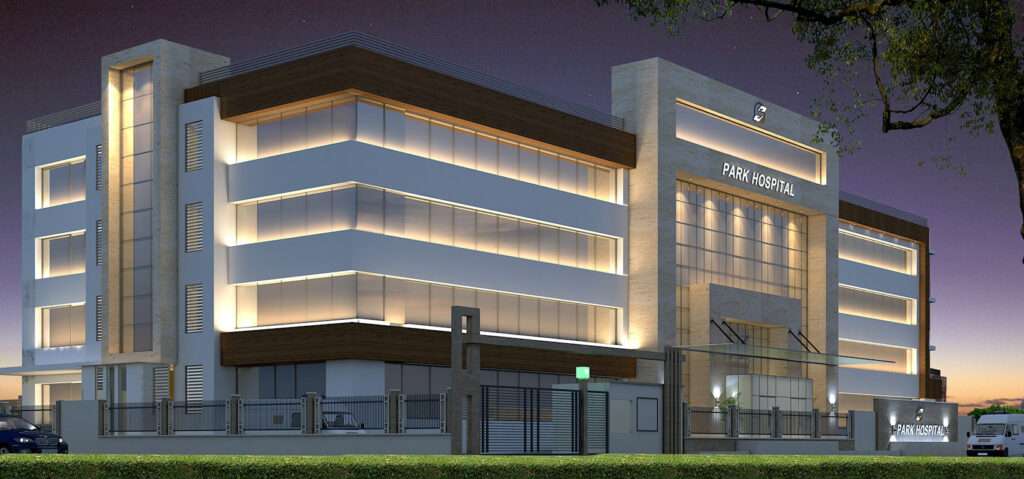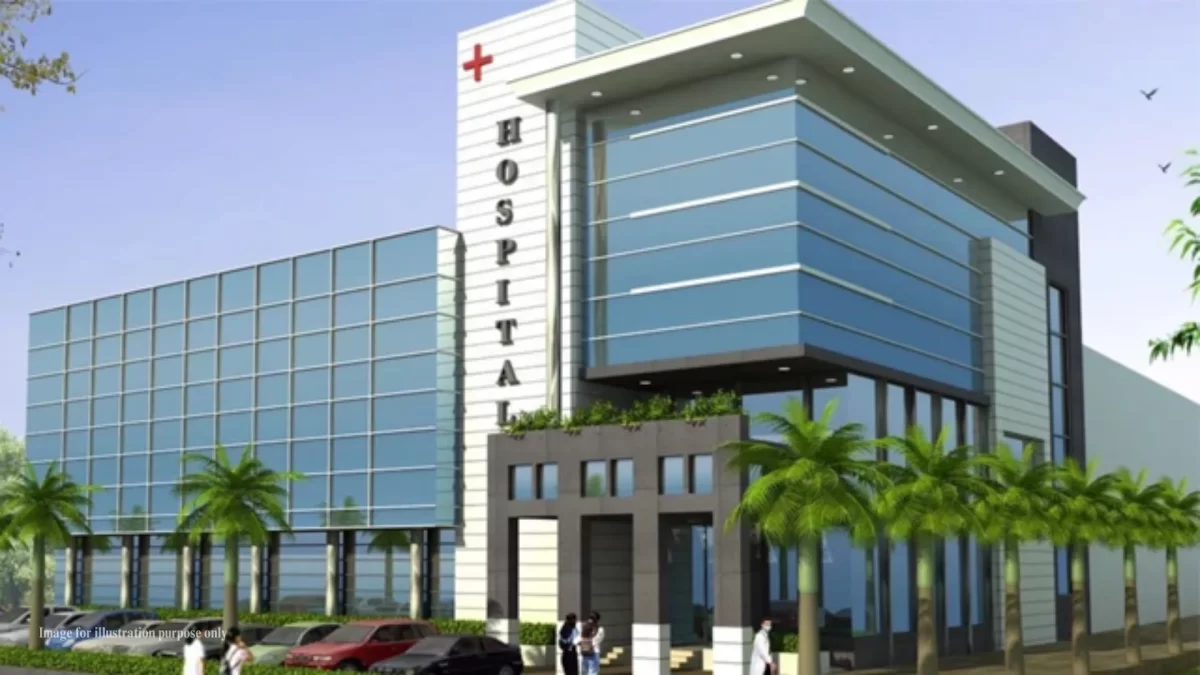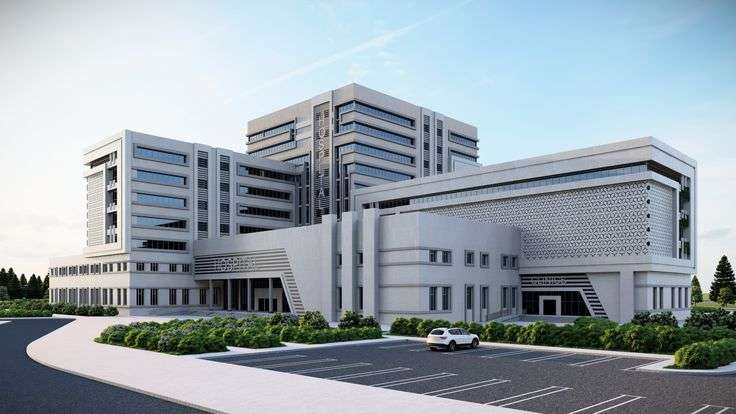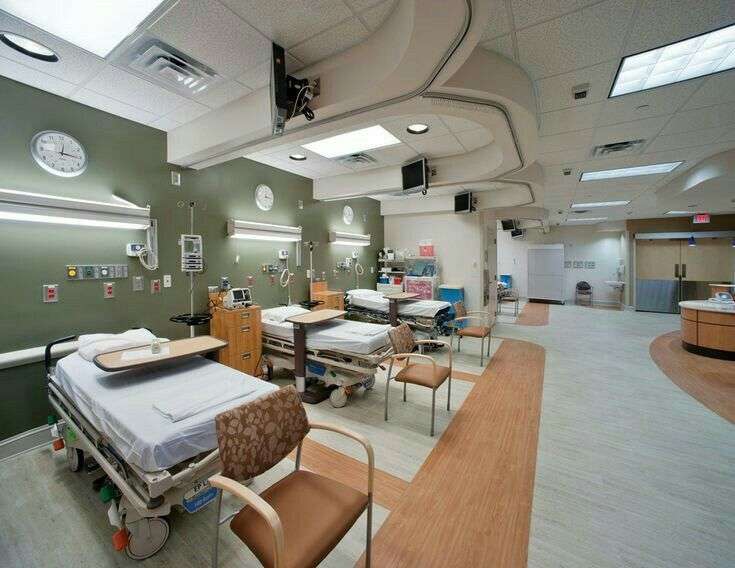
Everything You Need to Know About Vastu Hospital Construction
July 16, 2024
Why Is RCC Necessary for Hospital Construction?
July 22, 2024Building a multi-specialty hospital in India is a complex yet rewarding endeavor. With a growing demand for quality healthcare and an ever-evolving medical landscape, establishing a hospital can significantly contribute to the community. But where do you start? This guide will walk you through everything you need to know to build a successful multi-specialty hospital in India.
Importance of Multi-specialty Hospitals
Multi-specialty hospitals offer a wide range of services under one roof, providing comprehensive care to patients. They are crucial in managing complex health issues and ensuring that patients receive coordinated and continuous care.
Overview of Healthcare in India
India’s healthcare system is a mix of public and private sectors. While the public sector provides basic healthcare, the private sector is known for its advanced medical services. However, there’s a significant gap in accessibility and quality, which multi-specialty hospitals aim to bridge.
Market Research and Feasibility Study
- Understanding the Healthcare Needs: Before embarking on this journey, it’s essential to understand the healthcare needs of the target population. Conduct surveys and gather data to identify prevalent health issues and the demand for various medical services.
- Analyzing Competition: Analyze the existing hospitals in the area. What services do they offer? What are their strengths and weaknesses? Understanding your competition will help you carve out a niche and offer unique services that set your hospital apart.
- Financial Feasibility: Assess the financial viability of your project. Prepare a detailed feasibility report, including projected costs, revenue streams, and profitability. Ensure you have a clear picture of the investment required and the expected return on investment (ROI).
Regulatory and Legal Requirements
- Licenses and Permits: Navigating the regulatory landscape is critical. Obtain all necessary licenses and permits from the relevant authorities. This includes permissions from the Health Ministry, pollution control boards, and local municipal bodies.
- Compliance with Healthcare Standards: Ensure your hospital complies with national and international healthcare standards. This involves adhering to guidelines set by bodies like the National Accreditation Board for Hospitals & Healthcare Providers (NABH) and the Joint Commission International (JCI).

Location and Infrastructure
- Choosing the Right Location: Location is paramount. Select a location that is easily accessible to the target population, has good connectivity, and is in a safe neighborhood. Proximity to residential areas can be an added advantage.
- Designing a Patient-Centric Infrastructure: Design your hospital with the patient in mind. Ensure that the infrastructure is patient-friendly, with spacious waiting areas, comfortable patient rooms, and easy navigation. Incorporate natural light and green spaces to create a healing environment.
- Ensuring Accessibility and Connectivity: Make sure your hospital is easily accessible by public and private transport. Adequate parking facilities, ramps, and elevators for the differently abled are essential to ensure inclusivity.
Funding and Financial Planning
- Investment Options: Explore various funding options, including loans, private equity, and government grants. Partnering with investors who share your vision can also be beneficial.
- Budgeting and Financial Forecasting: Prepare a comprehensive budget covering all aspects of hospital construction and operation. Forecast your financials accurately to ensure you have sufficient funds at every stage of the project.
Architectural Design and Construction
- Collaborating with Architects and Builders: Work with experienced architects and builders who specialize in healthcare infrastructure. Their expertise will ensure that your hospital meets all regulatory requirements and is built to the highest standards.
- Sustainable and Efficient Design: Incorporate sustainable design principles to minimize environmental impact. Energy-efficient lighting, waste management systems, and water conservation measures can significantly reduce operational costs in the long run.
Medical Equipment and Technology
- Procuring Advanced Medical Equipment: Invest in state-of-the-art medical equipment. Advanced diagnostic and treatment equipment can improve patient outcomes and attract more patients to your hospital.
- Implementing Health Information Technology: Adopt robust health information technology (HIT) systems. Electronic Health Records (EHR), telemedicine, and other digital tools can streamline operations and enhance patient care.
Staffing and Human Resources
- Recruiting Skilled Medical Professionals: Hiring the right team is crucial. Recruit skilled doctors, nurses, and support staff who are not only competent but also compassionate and patient-focused.
- Training and Development Programs: Invest in continuous training and development programs for your staff. Keeping them updated with the latest medical practices and technologies ensures high-quality patient care.
Hospital Management and Operations
- Implementing Effective Management Systems: Implement efficient management systems to ensure smooth operations. This includes hospital management software, supply chain management, and patient management systems.
- Operational Workflow Optimization: Optimize your hospital’s operational workflow. Streamlining processes such as patient admission, discharge, and billing can enhance efficiency and patient satisfaction.
Marketing and Branding
- Developing a Strong Brand Identity: Create a strong brand identity that reflects your hospital’s values and mission. A recognizable brand can help attract patients and build trust in the community.
- Strategies for Marketing and Outreach: Implement effective marketing strategies to reach your target audience. Use digital marketing, social media, and community outreach programs to spread awareness about your hospital.
Challenges and Solutions
- Addressing Common Challenges: Building and running a hospital comes with its challenges, from regulatory hurdles to operational issues. Identifying these challenges early and developing strategies to overcome them is crucial.
- Innovative Solutions in Hospital Management: Adopt innovative solutions to improve hospital management. This includes using artificial intelligence for diagnostics, implementing green building practices, and offering telehealth services.
Future Trends in Multi-specialty Hospitals
- Emerging Technologies: Stay updated with emerging technologies in healthcare. Innovations like AI, robotics, and personalized medicine are transforming the way hospitals operate and deliver care.
- Trends in Patient Care: Keep an eye on trends in patient care. Patient-centered care, preventive healthcare, and the integration of wellness programs are becoming increasingly important.
Conclusion
Hospertz cuts through the complexities of building a multi-specialty hospital in India. Leverage our expertise for seamless market research, regulatory navigation, and staffing solutions – for a thriving healthcare facility.




